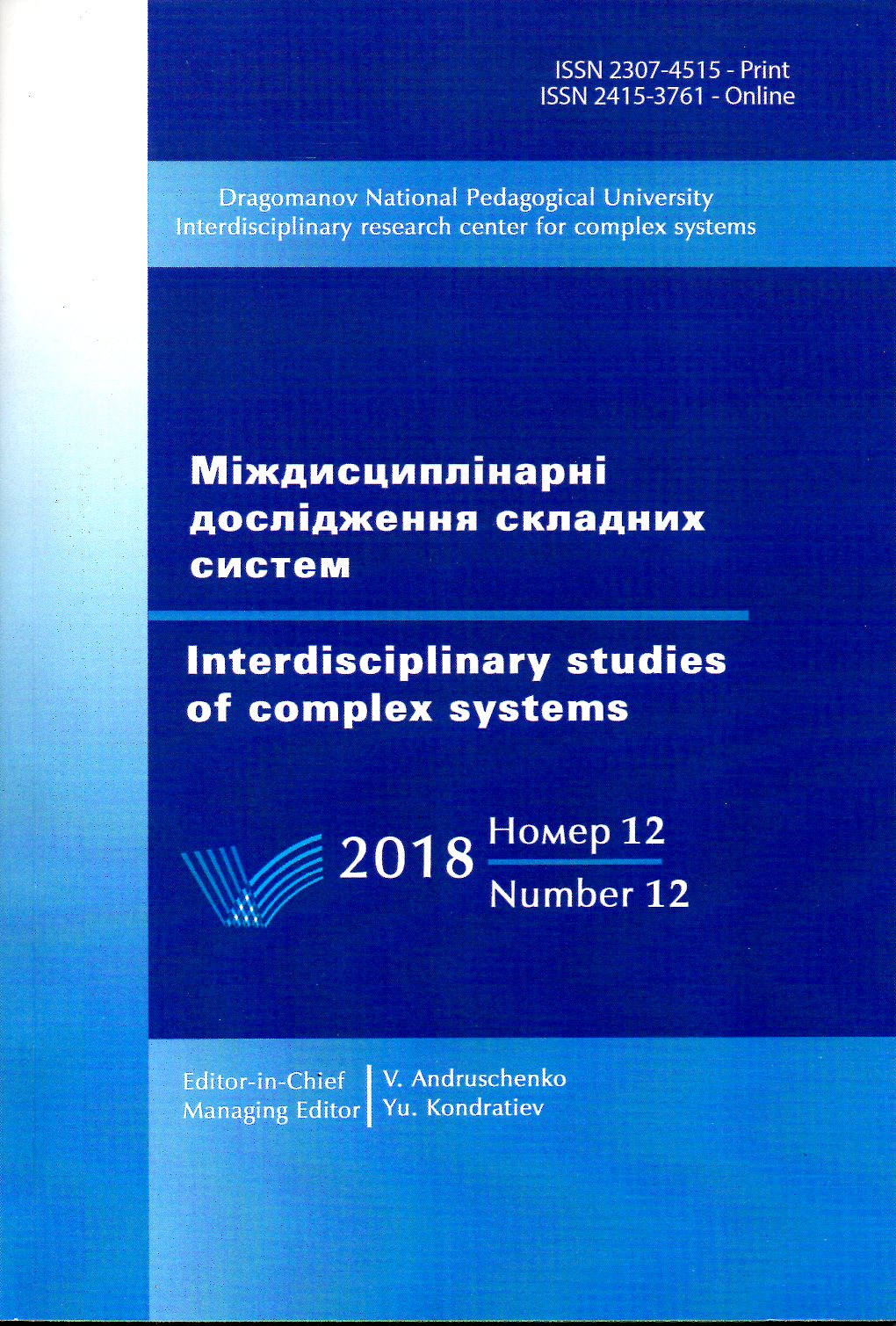The Ecological Imperative and Human Nature: A New Perspective on Ecological Education
DOI:
https://doi.org/10.31392/2307-4515/2018-12.2Анотація
This paper aims at disclosing the essence of "environmental imperative" and "human nature", identifying the interconnection and relationship of historical development and current processes of globalization in the system of education and training and their influence on the formation of human cultural values. Global society and its educational institutions are still not ready to meet the environmental challenges of the 21st century. The international community is starting to understand that the moral principles, spiritual world and human behavior in the biosphere do not meet the conditions of life, in which the society is immersed. People are now realizing that only the co-evolution with the biosphere will allow them to fit reasonably into the natural cycles and comprehend universal laws that prevail in the world. Similar trends bring the issues of environmentally safe development of civilization to the forefront of scientific inquiry, especially in education. For the sake of ecological survival, humankind must develop and actively implement a unified global strategy for the worldwide development on the basis of global cooperation in education that will ensure environmental quality for the civilization in the 21st century. Through nurturing environmental sensitivity, contemporary humankind is able to explore their own selves and come to new conclusions in experiencing their own realities and truths. Bringing the problem of a human in terms of globalization of education to the fore will eventually result in a new paradigm that reflects a specific holistic nature of humans, their involvement to the natural and cultural worlds and their aspiration to move beyond their own limits.Посилання
Adam, R.J. 2016. Education for Wicked Problems and the Reconciliation of Opposites: A Theory of Bi-Relational Development. Routledge, Abingdon, UK.
Boyce, G. 2004. Critical Accounting Education: Teaching and Learning Outside the Circle. Critical Perspectives on Accounting 15:565-586.
Cairns, G. E. 1962. The Philosophy and Psychology of the Oriental Man-dala. Philosophy East & West 11(4):219-229.
Danylova, T. 2017. Eastern Mysticism and Timothy Leary: Human Beyond The Conventional Reality. Anthropological Measurements of Philosophical Research 11:135-142.
Fluellen, J.E. 2005. Convergence: Human Intelligence The Next 100 Years. Retrieved from: http://files.eric.ed.gov/fulltext/ED490417. pdf
Gray, R., D. Collison, with J. French, K. McPhail, and L. Stevenson. 2001. The Professional Accountancy Bodies And the Provision of Education and Training in Relation to Environmental Issues. The Institute of Chartered Accountants of Scotland, Bell & Bain Ltd, Glasgow.
Huxley, J. 1960. The Evolutionary Vision. University of Chicago Magazine LII(4):18-23.
Kato, M. 2015. Challenges of Environmental Problems to the Philosophy of Education. Police Futures in Education 13(1):7-19.
Kelso, J. Principles of Biocultural Anthropology. (Undated). Retrieved from: http://spot.colorado.edu/~kelso/Biologicalanth.html
Khongsdier, R. 2007. Bio-cultural Approach: The Essence of Anthropological Study in the 21st Century. Anthropology Today: Trends, Scope and Applications. American Anthropologist Special Volume 3:39-50.
Lumsden, Ch. and E. Wilson. 2005. Genes, Mind, and Culture: The Coevo-lutionary Process. World Scientific Publishing Company; 25th Anniversary Edition.
McElroy, A. 1990. Bio-cultural models in studies of human health and adaptation. Medical Anthropology Quartery 4(3):243-265.
Park, R. E. and E.W. Burgess. 2014. Introduction to the Science of Sociology. CreateSpace Independent Publishing Platform.
Salata, G. 2012. Human Nature in the Problem Field of Cultural Anthropology. Ural Research Bulletin 1:17-23.
##submission.downloads##
Опубліковано
Номер
Розділ
Ліцензія
Автори, які публікуються у цьому журналі, погоджуються з наступними умовами:- Автори залишають за собою право на авторство своєї роботи та передають журналу право першої публікації цієї роботи на умовах ліцензії Creative Commons Attribution License, котра дозволяє іншим особам вільно розповсюджувати опубліковану роботу з обов'язковим посиланням на авторів оригінальної роботи та першу публікацію роботи у цьому журналі.
- Автори мають право укладати самостійні додаткові угоди щодо неексклюзивного розповсюдження роботи у тому вигляді, в якому вона була опублікована цим журналом (наприклад, розміщувати роботу в електронному сховищі установи або публікувати у складі монографії), за умови збереження посилання на першу публікацію роботи у цьому журналі.
- Політика журналу дозволяє і заохочує розміщення авторами в мережі Інтернет (наприклад, у сховищах установ або на особистих веб-сайтах) рукопису роботи, як до подання цього рукопису до редакції, так і під час його редакційного опрацювання, оскільки це сприяє виникненню продуктивної наукової дискусії та позитивно позначається на оперативності та динаміці цитування опублікованої роботи (див. The Effect of Open Access).











